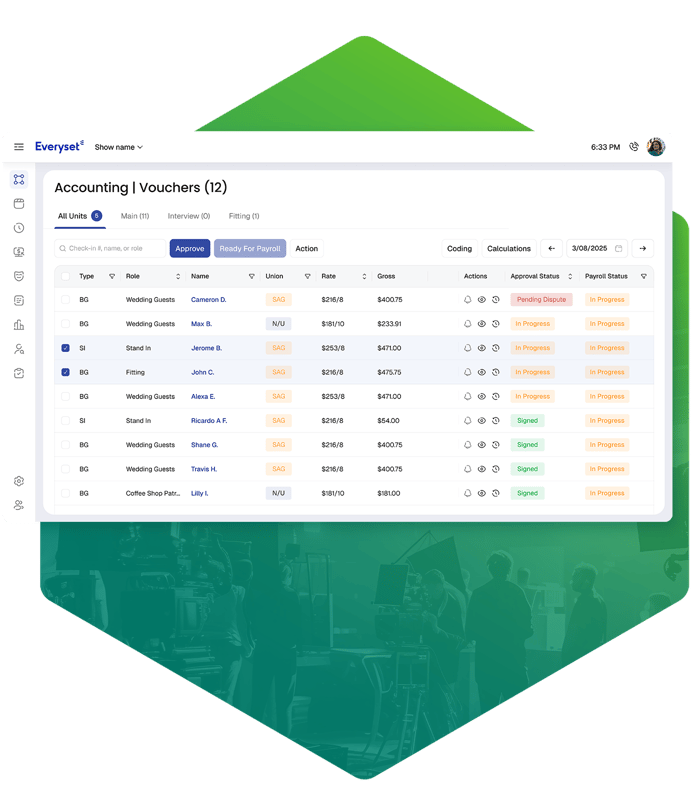OVERVIEW
Background Payroll Services
Managing payroll for background actors is seamless with the GreenSlate and Everyset integration. Simplify your production payroll from start to finish.

Streamline background payroll with GreenSlate and Everyset.
Send start work, manage timecards, and handle approvals with Everyset Digital Vouchers, then process payroll seamlessly with GreenSlate. Our integration eliminates file exports and uploads, providing extra security for sensitive data. Everyset Digital Vouchers include built-in union and non-union calculations for accurate payments, while also verifying employment eligibility for every background performer.
All payments are issued through GreenSlate, with real-time payroll visibility in the GreenSlate app.
Paper free, simple as can be.
With increased speed and accuracy, you'll always have the crucial information at your fingertips, regardless of your location.
Go Digital
Receive digital start paperwork, digital vouchers, and automated production reports.
Instant Access from Anywhere
Get the information you need quickly from any mobile device. No wifi? No problem - use our spreadsheet features to work offline.
Full API Integration
Seamless integration between GreenSlate and Everyset means background payroll flows from onboarding to final edits without a hitch, with a dedicated team to assist you along the way.

